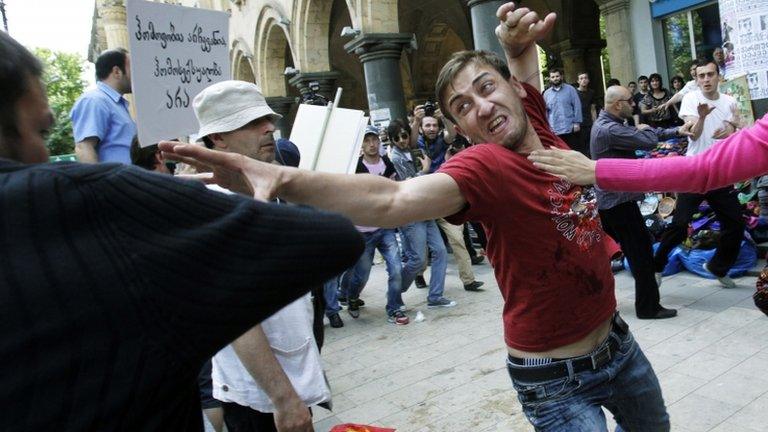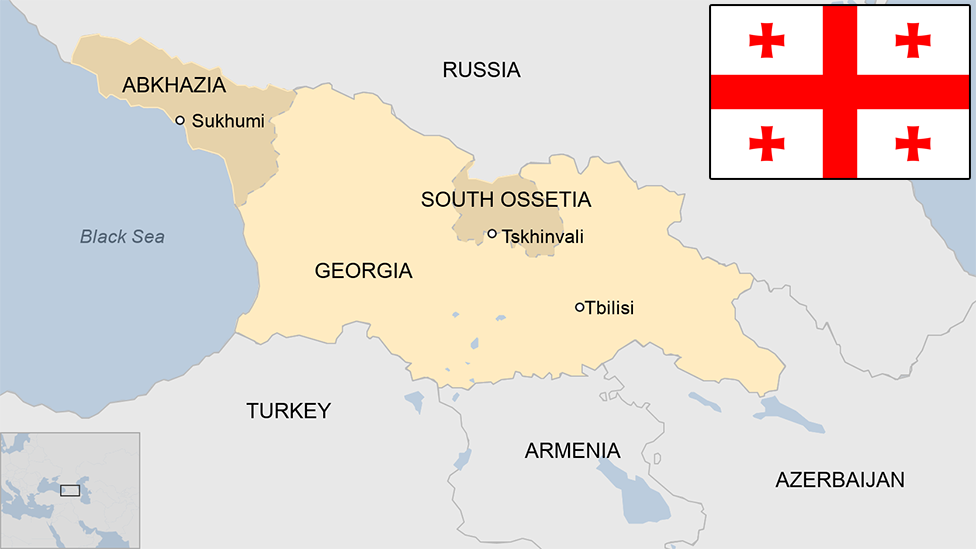Thousands protest in Georgia over gay rights rally
- Published
The rally in Georgia had to be abandoned after protesters, including Orthodox priests, disrupted the event
Thousands of Georgians have protested in the capital Tbilisi against a gay rights rally being held to mark the international day against homophobia.
They broke through police barricades and carried stinging nettles with which to beat activists. Some posters read: "We don't need Sodom and Gomorrah".
Police were forced to bus the 50 or so activists out of the city centre to avoid further violence.
Several people, including a journalist and a police officer, were injured.
The protests followed comments from the head of the Georgian Orthodox Church.
Patriarch Ilia II had urged the authorities not to allow the gay pride rally to go ahead, saying it was a "violation of the majority's rights" and "an insult" to the Georgian nation.
He described homosexuality as a disease and compared it to drug addiction.
The BBC's Damien McGuinness in Tbilisi says the Patriarch is by far the most respected public figure in Georgia, with approval ratings consistently at around 90%.
All the anti-gay demonstrators our correspondent spoke to said the Patriarch's comments had inspired them to attend Friday's protest, which was organised with the help of Orthodox priests.
"We won't allow these sick people to hold gay parades in our country," said one woman holding a bunch of nettles. "It's against our traditions and morals."
Such attempts to halt an officially-approved rally have dismayed gay activists and the authorities in Georgia.
Georgia's human rights ombudsman, Uchi Nanuashvili, called Friday's events "deplorable".
"These people [the activists] should have the right to express their views and to hold demonstrations," said Nino Bolkvadeze, a lawyer with the non-governmental organisation Identity.
A similar rally held last year ended in the same way.
Georgia - a former soviet republic - is keen to join the European Union.
There are concerns that this aspiration could be undermined if Georgia's authorities appear unable to guarantee sexual minorities the right to demonstrate safely, our correspondent says.
- Published17 May 2012

- Published31 December 2024
